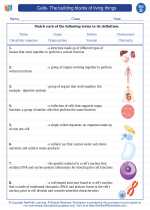Potassium: An Essential Element
Potassium is a chemical element with the symbol K and atomic number 19. It is a silvery-white metal that is soft enough to be cut with a knife. Potassium is an essential nutrient for the human body and plays a crucial role in various physiological processes.
Properties of Potassium
Potassium is a highly reactive metal and is never found free in nature. It is instead found in various minerals such as sylvite, carnallite, and langbeinite. Potassium has a low density and is the seventh most abundant element in the Earth's crust.
Role in the Human Body
Potassium is vital for the proper functioning of the human body. It plays a key role in maintaining fluid and electrolyte balance, nerve function, and muscle control. Adequate potassium intake is also associated with lower blood pressure, reduced risk of stroke, and protection against loss of muscle mass.
Sources of Potassium
Good dietary sources of potassium include fruits (such as bananas, oranges, and avocados), vegetables (such as spinach, potatoes, and tomatoes), and legumes (such as beans and lentils). Additionally, potassium can be found in dairy products, fish, and nuts.
Study Guide
- What is the chemical symbol for potassium?
- Where is potassium found in nature?
- What role does potassium play in the human body?
- What are some good dietary sources of potassium?
- What are the potential health benefits of adequate potassium intake?
Remember that while potassium is essential for good health, too much of it can be harmful. Always consult with a healthcare professional before making significant changes to your diet or taking supplements.
[Potassium] Related Worksheets and Study Guides:
.◂Science Worksheets and Study Guides Fourth Grade. Cells- The building blocks of living things
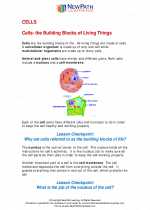
 Activity Lesson
Activity Lesson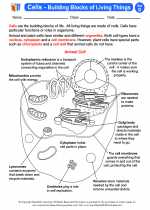
 Worksheet/Answer key
Worksheet/Answer key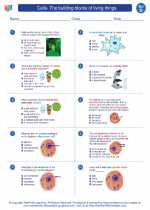
 Worksheet/Answer key
Worksheet/Answer key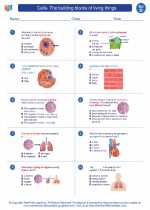
 Worksheet/Answer key
Worksheet/Answer key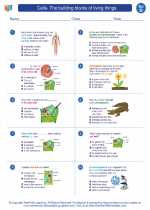
 Worksheet/Answer key
Worksheet/Answer key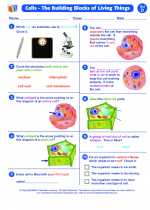
 Worksheet/Answer key
Worksheet/Answer key
 Vocabulary/Answer key
Vocabulary/Answer key
 Vocabulary/Answer key
Vocabulary/Answer key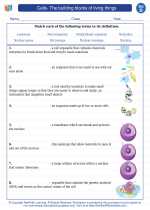
 Vocabulary/Answer key
Vocabulary/Answer key